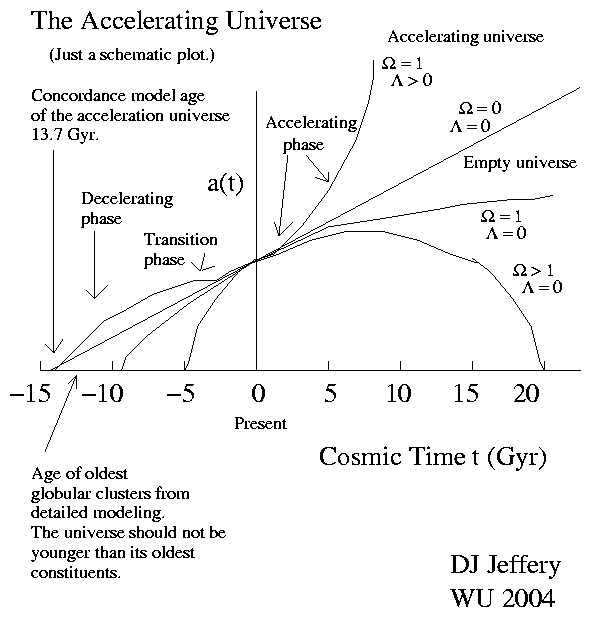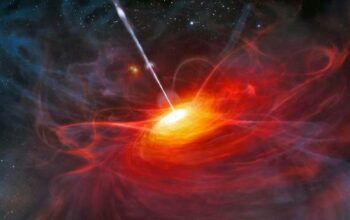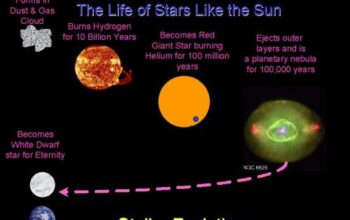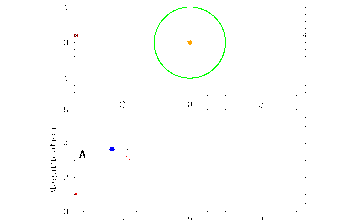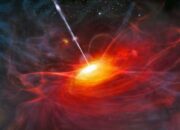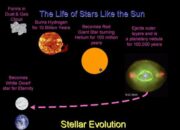In recent decades, the cosmos has unveiled an enigmatic phenomenon: the acceleration of its expansion. The implications of this discovery extend far beyond the realms of theoretical astrophysics; they permeate various aspects of our technological trajectory. As the universe expands at an ever-increasing rate, it introduces unique constraints that could shape the future of technology development, engineering potential, and our understanding of fundamental physics.
The cosmic expansion, which has been corroborated through multiple observations including supernova luminosity and cosmic microwave background radiation, presents a compelling narrative of a universe that is not only expanding but doing so with an accelerating velocity. This peculiarity raises pivotal questions about the ultimate fate of the cosmos—and the practical ramifications for human technology. Indeed, as galaxies drift apart, it is conceivable that the very foundational elements of technology will undergo a metamorphosis dictated by the laws of a dynamic universe.
The current trajectory of technological advancement is intrinsically linked to our understanding of physics. The acceleration of the universe, primarily attributed to a mysterious force known as dark energy, challenges existing paradigms. It beckons scholars to re-evaluate current models of physical law, thereby potentially stymying the evolution of technologies that hinge on a stable cosmic framework. For instance, numerous technologies reliant on quantum mechanics, electromagnetism, and gravitation are, at their roots, grounded in a universe designed with uniformity and predictability. The inexorable spread of galaxies could lead to a reality where astronomical distances thwart communication and travel, resulting in a technological landscape that diverges drastically from our current aspirations.
Moreover, the pursuit of energy harnessing technologies—ranging from fusion reactors to solar energy systems—may be fundamentally affected by cosmic expansion. Our solar system is gradually receding from others, which could limit resource sharing and interstellar energy acquisition. This is no mere conjecture; as celestial bodies retreat into the depths of space, the abundance of resources required for sustaining ambitious energy projects will diminish. Thus, dependency on local resources becomes paramount, and the innovation in sustainable energy systems must be accelerated to mitigate impending shortages exacerbated by cosmic isolation.
The acceleration of the universe could also impose constraints on the development of artificial intelligence and computational technologies. As distances between potential data repositories and computational nodes increase, the efficacy of networked systems may infer a declining capability for instantaneous processing and data transfer, effectively rendering many current algorithms obsolete. Concepts rooted in rapid data exchange and high-speed computational requirements may require re-engineering as latency becomes a significant factor driven by the expanding universe. This emerging reality may necessitate the invention of more robust algorithms resilient to the constraints imposed by cosmic distances.
As we contemplate a future shaped by an accelerating universe, it becomes essential to factor in the implications for artificial intelligence (AI). AI, fundamentally predicated on the notion of data availability and computational power, could be significantly influenced by the spatial-temporal dynamics of the cosmos. In scenarios where interstellar communication becomes hindered, the evolution of adaptive learning systems might require a regression to localized models that are capable of operating autonomously, possibly at the expense of collective intelligence. This localized approach may stymie the progressive convergence of knowledge, ultimately curtailing the rapid advancements that characterize current AI research.
However, the notion of an accelerating universe is not merely a backdrop for technological limitations; it incorporates a deep-seated philosophical inquiry into the nature of existence and progress. The humbling realization that our cosmos is unfurling in an almost ungraspable manner imbues the scientific community with a sense of urgency. As each second ticks away in our ever-expanding universe, humanity finds itself caught in a delicate balance—entrepreneurial innovation must continue to flourish amidst a backdrop that is continuously changing. This raises questions about the malleability of technological innovation. Will humanity pivot hastily towards overcoming these challenges, or will the inertia of conventional thinking impede progress?
One elegant solution could lie in interdisciplinary collaboration. The confluence of astrophysics, engineering, and information sciences may lay the groundwork for creating adaptive frameworks capable of leveraging quantum properties to transcend the limitations imposed by cosmic distances. By fostering innovation in teleportation, quantum entanglement communication, and advanced propulsion systems, humanity could more effectively navigate an uncertain cosmic future. Moreover, synthesizing methodologies from disparate fields may unveil unforeseen technologies capable of reshaping the limitations imposed by the accelerating cosmos.
In this grand narrative of an ever-evolving universe, the focus on the accelerating expansion reveals profound limitations awaiting technological development. The cosmos, in its relentless march, presents both challenges and opportunities. As we face the realities posed by cosmic isolation and the constraints on resource availability, the critical undertaking for future generations will be to engineer solutions that may counteract the inevitable unfolding of cosmological phenomena. Ultimately, the quest for knowledge and technological advancement must find a way to adapt and innovate, capturing the essence of human resilience against the cosmic backdrop of an accelerating universe.
